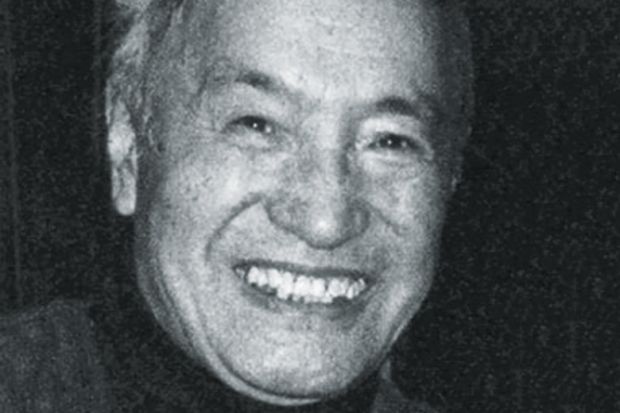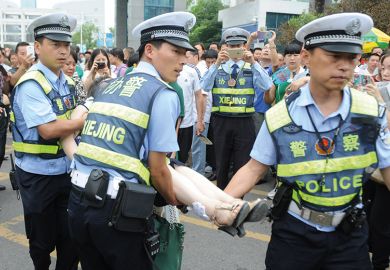Yu-kung Kao, the son of an academic engineer, was born in Shenyang, Manchuria in 1929. He began studying Chinese literature at Beijing University’s Law School in 1947 and continued at the National Taiwan University when his family moved two years later.
On completing his BA in 1954, however, Professor Kao decided to develop his academic interests at Harvard University, alongside other émigré Chinese scholars who would play a central role in transplanting Sinological learning into the US.
Here he developed a comparative perspective on Chinese culture by learning Japanese, a number of European languages and even Roman history. He also amplified the traditional approaches he had grown up with by engaging with new forms of literary theory and criticism.
In 1962, Professor Kao completed a doctorate on “The Rebellion of Fang La”, an event central to both the politics and literature of the Song dynasty. At this point, he had already been working at Stanford University for two years but decided to move to Princeton University. He was to remain there for the rest of his career, retiring as professor emeritus of East Asian studies in 1999.
Once based at Princeton, Professor Kao began publishing a series of articles that transformed our understanding of Chinese lyric poetry. Since these were then translated into Chinese and published in Taiwan, they proved equally influential in establishing a new form of structuralist criticism there.
This also led to an invitation to Professor Kao to teach literary theory at the National Taiwan University for the academic year 1978-79. The articles based on his lectures were later collected into a landmark book, Essays on the Chinese Literary Canon and the Study of Literature, which was published in Taiwan in 2004 and in Mainland China in 2008.
Kang-i Chang, the Malcolm G. Chace ’56 professor of East Asian languages and literatures at Yale University, described Professor Kao as “a true ‘master’”, whose teaching technique for every student “always aligned with that individual’s life, making him very memorable. Now that he is suddenly gone, I treasure even more the enlightenment and lessons he gave me.”
Himself originally trained as a dancer, Professor Kao always combined his literary interests with a passion for classical ballet and modern dance that made him a familiar figure on the New York dance scene. He died on 29 October.
Register to continue
Why register?
- Registration is free and only takes a moment
- Once registered, you can read 3 articles a month
- Sign up for our newsletter
Subscribe
Or subscribe for unlimited access to:
- Unlimited access to news, views, insights & reviews
- Digital editions
- Digital access to THE’s university and college rankings analysis
Already registered or a current subscriber?







